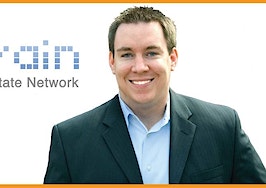- When trying to attract a solo agent to your team, show them how their lifestyle, work responsibilities and income could change.
- Run your team like a business.
- As a team leader, you always have to be hiring.
Matt Fetick, CEO of the Matt Fetick Real Estate Team, is an agent in the top 100 of Keller Williams Real Estate internationally and no. 1 in Chester County, Pennsylvania.
At Inman Connect New York, he told the story of starting out as an individual agent.
“My first listing, I had the home on the market three weeks, and the seller called and said they hadn’t heard from me.
“Why would I call you when I don’t have an offer? I’ll call you when I have an offer,” he responded.
This was not a recipe for long-term success. A listing agent he was not.
“I did not want to talk about the clients’ kids,” he said frankly.
So in order to stay in business, he hired great people who did love this side of customer development.
And, these days, he said, “My service is great. Nobody ever complains about being communicated with too much of the time.”
Fetick runs his team as a business rather than as a team, he said.
“I would like to get rid of the whole ‘real estate sales team’ term — I like real estate sales business,” he explained. “The team term is a misnomer, giving the impression that you will sell a lot of homes and dump all the stuff you don’t want to do on someone else.”
The buck stops squarely with him. “What stops my business from growing depends on my leadership skills,” he said.
Ben Kinney, whose Keller Williams expansion team is spreading from Bellingham, Washington to Seattle and on to the San Francisco Bay Area, Denver and Texas, also looked hard at his strengths and weaknesses when starting out.
“You wouldn’t find someone who could get a better price for clients, but I am disorganized and have to have people around me to help with that,” he said.
Kinney has a system for hiring.
“The first question I ask is, are you a gross income person or a net income business person?” The latter is the correct answer.
“Successful agents in my market may have made a lot of money, but they did not net anything,” he said.
Kinney will tell incoming agents: “You are going to do more business, have more training, leads and appointments. ”
He will show agents that for the same hours they worked in the last year, they will net a higher income, have a better quality of life and do the things they enjoy.

Jenna Bascom / Inman.com
“What I love about real estate teams is it is a high-margin business and there is something for everybody,” he said.
He added: “There is no right way to do it.”
Halstead’s Louise Phillips Forbes, who sells high-end property in Manhattan, likes to hire people from outside of the industry for her team.
The biggest mistake team leaders make is unfairly compensating members, she said.
“Whether my team member touches a piece of business or not, I give everybody a piece of the pie. It helps with longevity and I can’t manage all the business by myself.”
“We support each other and are united. We are all making plenty of money and there is a willingness and openness to learn.”
There is a fear that when you hire good team members they will just leave, said Fetick. ” If you lose somebody from your business, look in the mirror.”
Make it work for them, is his advice. If an “awesome person on the team” wants to move to Orlando, he would try and open an office there.
“The thing with hiring is you have got to always be hiring. If you don’t, ( and someone leaves) you are the replacement for that job – if you don’t have a back up,” added Kinney.





